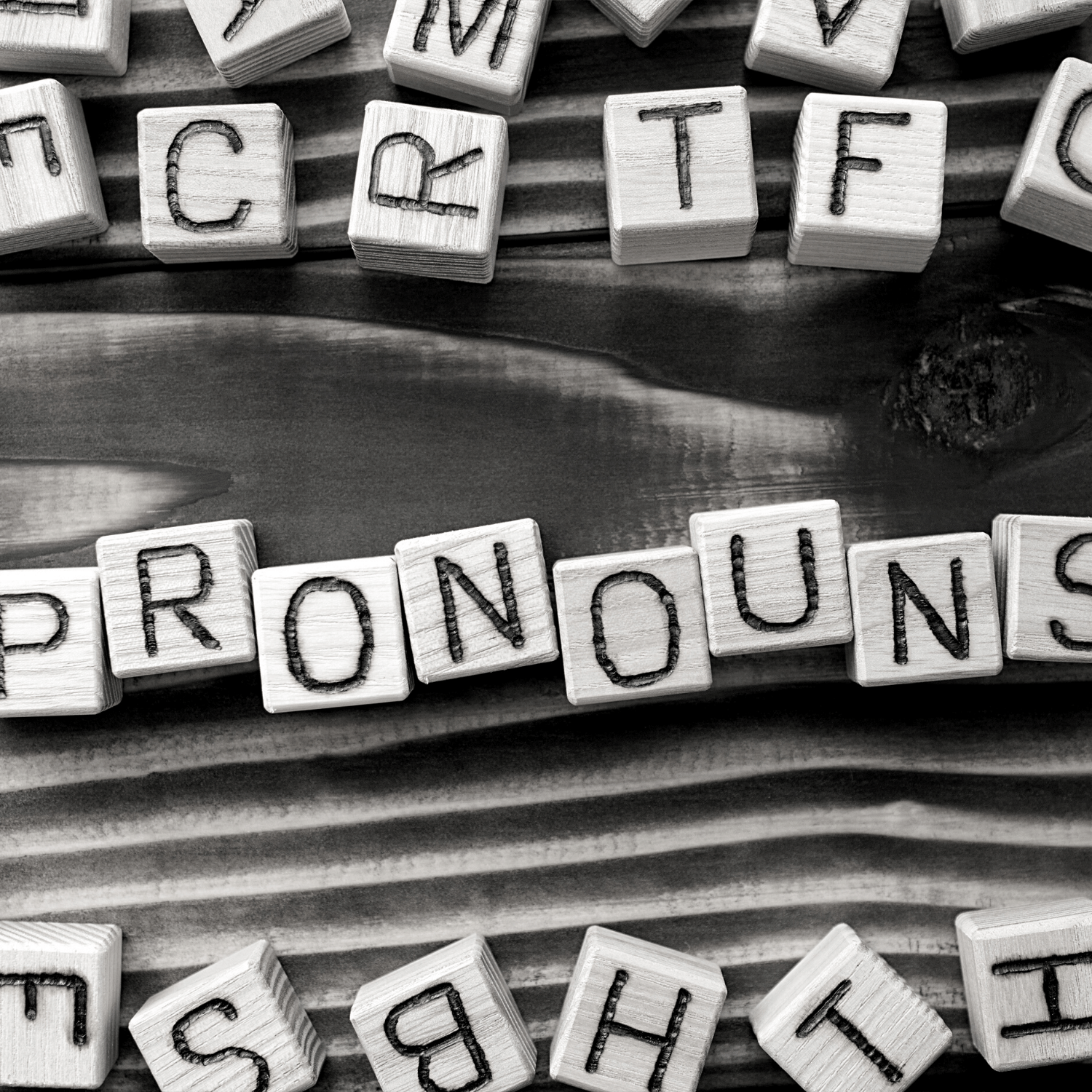G&STC’s Director Jesse Kahn talks with Gabrielle Kassel at Shape about Personal Pronouns
CHECK OUT G&STC’S DIRECTOR JESSE KAHN TALKING WITH GABRIELLE KASSEL AT SHAPE ABOUT PERSONAL PRONOUNS AND HOW TO NAVIGATE USING THEM.
ON HOW TO KNOW WHAT PRONOUNS TO USE
“Unfortunately, people often rely on external markers such as voice, hair length, body hair, and clothes to guess someone's gender, and therefore guess their pronouns. The problem: ‘You can't tell someone's gender based on what they're wearing or how they look,’ says Jesse Kahn, L.C.S.W., C.S.T., director and sex therapist at The Gender & Sexuality Therapy Center in NYC. ‘The only way to know someone's gender is for them to tell you.’ And that's where pronouns sharing and asking comes in.”
“That's why he says it's a good practice to introduce yourself with your name and pronouns, regardless of context. ‘This helps normalize the sharing of pronouns, and reminds everyone not to make assumptions,’ says Kahn.”
ON USING MULTIPLE PRONOUNS
“‘There are a lot of reasons someone might use multiple sets of pronouns,’ says Kahn. ‘Sometimes someone uses different pronouns depending on the environment and the people they're surrounded by, for safety or comfort,’ they say. For example, someone might use the neopronouns xe/xem when around people who understand neopronouns, but she/her with people who don't. Or, they/them with their friends, and he/him with their family members.
‘Sometimes people use multiple pronouns to affirm different parts of themselves,’ says Kahn. ‘And sometimes people use more than one set of pronouns to communicate the expansiveness of their gender.’ If someone tells you they use multiple pronouns, Kahn says you can ask if they'd like you to switch between both sets or when they'd like you to use each.“
ON FIGURING OUT YOUR PRONOUNS
“‘Figuring out and exploring what your pronouns are can be a process,’ says Kahn. And a process that requires some serious self-reflection. He recommends asking yourself the following questions:
What am I trying to communicate with my pronouns?
How do my current pronouns make me feel?
How does it make me feel when people call me X pronoun?
How does it feel to refer to yourself by different sets of pronouns?
Do you feel restricted/limited in your gender/body by choosing X pronoun?
Which pronouns make me feel seen?
If you don't feel comfortable playing with different pronouns publicly, Kahn says that you can explore in private with you and your mirror, your shower thoughts, or your late-night noodling.”
MORE FROM G&STC DIRECTOR JESSE KAHN ON THIS TOPIC
ON WHY PRONOUNS AREN’T PREFERRED
When someone uses the language “preferred” it suggests that someone’s pronouns are not important, and that using their correct pronoun(s) is an option. While some people do have pronouns they prefer for different situations, locations, settings, people, days, etc, that is different. Start by asking someone their pronouns, and if they give you multiple pronouns ask if they have preferences between those options.
ON EXPLORING NEW PRONOUNS
You can start just by playing around with different pronouns in your head–it doesn't have to be a public exploration if you're not ready to share. When you are ready, you can select some close, trusted loved ones, and ask them to refer to you by whatever new pronouns you're trying out. Seeing how it feels when someone else calls you by new pronouns can help you determine if they are the right ones for you or not!
ON USING MULTIPLE PRONOUNS
There are a lot of reasons someone might use multiple sets of pronouns! Sometimes context can be a determining factor–someone might use different pronouns depending on the environment and the people they're surrounded by, for safety or comfort. Some people aren't sure what pronoun they want, and it can be helpful to try out a few. Some people use multiple pronouns to affirm different parts of themselves. Some people find that using more than one pronoun is a helpful way to communicate the expansiveness of their gender.
Some people prefer one set of pronouns, but are also okay with a secondary set of pronouns. Some people are okay with all pronouns. Some people are indifferent about what pronouns you use for them. Some people aren’t sure which pronoun they want.
ON NEOPRONOUNS
Some people use neo-pronouns as a way to explore identity beyond gender. It allows people to communicate an expansive, personal identity that feels authentic to them.
Neo pronouns have no inherent link to gender and can therefore disrupt the culture of making assumptions in connection to pronouns.
ON BEST PRACTICES FOR RESPECTING PRONOUNS
It's good practice to introduce yourself with your own pronouns regardless of context. Anyone can use any pronouns, so you won't know by looking at someone which ones they use and they won’t know what pronouns you use. This also takes the pressure off of trans and nonbinary people and contribute to normalizing sharing your pronouns and not making assumptions.
If someone uses multiple pronouns and you aren't sure when it's appropriate to use which pronouns, or you don’t know someone’s pronouns –ask! You can say “what are your pronouns?” or “do you use any specific pronouns?” The persson can then let you know their pronouns, how they relate to pronouns, and if there are times when they do or don't want certain pronouns used. When you ask (listen and then use correctly) it demonstrates that you're committed to knowing and respecting them.
If you do accidentally misgender someone, apologize succinctly and move on, with the intention of paying closer attention to your language in the future.
